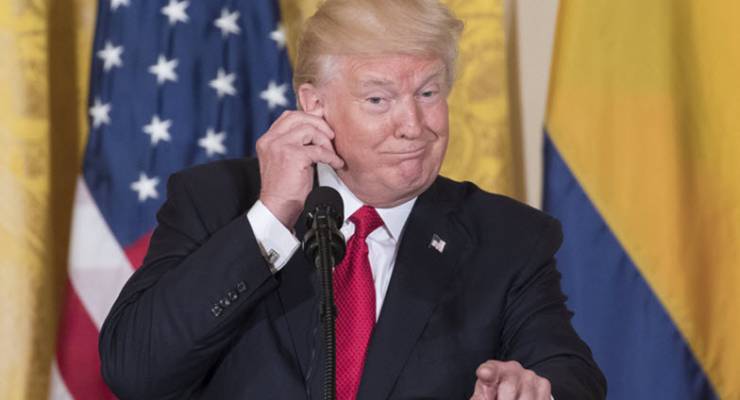
If government and the Business Council truly believe the logic that “Donald Trump gives completely unjustified handouts to corporations so we should too”, the mind boggles at what they’ll do after Trump’s latest protectionist stupidity.
On Monday, Trump ordered tariffs of up to 50% on imported washing machines for the next three years and of up to 30% on solar cells for the next four years: while the first 2.5 gigawatts (GW) of solar cell imports will not be subject to tariffs, that is much less than the size of the US market. In fact, there were about 3.5GW of small-scale solar capacity installed in the US last year alone, along with about twice as much again in large-scale plants.
“The president’s action makes clear again that the Trump Administration will always defend American workers, farmers, ranchers, and businesses,” said Robert Lighthizer, the US trade representative. As protectionism always does, of course, the move will in fact increase costs for washing machines and solar power for people like American workers, farmers, ranchers and businesses. And the US Solar Energy Industries Association said the decision would lead to the loss of up to 23,000 jobs this year and result in the delay or cancellation of billions of dollars in investment in solar projects. Mike Bloomberg tweeted that it would “destroy U.S. jobs, raise Americans’ electric bills and hurt our environment”.
But it gets much, much more stupid. The two US makers who stand to benefit from the tariffs are both bankrupt. Better yet, they’re not really American. Suniva, the bankrupt company that led the “trade relief” process for tariffs, was majority-owned by Chinese investors. The other firms is the US subsidiary of bankrupt German company SolarWorld. It collapsed in May, just a few weeks after Suniva.
Investment bank, Goldman Sachs said in a research note last year that granting the Suniva and SolarWorld petition would increase all-in costs for utility-scale projects by an estimated 30% and would increase prices for residential projects by 15%. “We expect solar installations would fall precipitously in the U.S. on the back of lower returns [resulting from a] higher-priced module,” the firm wrote. In its assessment, Bloomberg New Energy Finance said the Suniva trade relief claims were “riddled with holes and hypocrisies”.
From an Australian point of view, there’s some small comfort in that there’s a major economy that has an even more self-destructive system of protection than our own purgatorial, absurd anti-dumping provisions. But will Scott Morrison and the Business Council follow this Trump initiative as well? They think giving billions in handouts to corporations, blowing out the budget deficit and cutting funding for health, education and defence, all to goose company share prices and give executives higher bonuses, is a good idea. Why not this too?









Big businesses seem to have no loyalty to the countries in which they operate and very little regard for the next generation or its living environment. Some may be committing crimes against humanity.
Solar, backed by gas turbines, competes with steam generators. While steam is raised using US coal, it makes protectionist sense to block solar+gas. But as the steam generators re-equip with gas replacing coal, the burning of US gas will be similar with or without solar. The tariff serves only to deride the green image of solar.
Huh?
I can’t see how adding a tariff to solar panels makes them less “green”. It just makes them more expensive.
The tariff is there to protect the US coal industry from renewable energy, as is the National Energy Guarantee here (ironic that much of the issues with the power grid this year have been from coal plants failing). All the tariff does is make solar more expensive, and thus less competitive.
It fails to take into account that natural gas is taking over from coal as it is cheap over there.
Yes, I am agreeing with you, going one step further. He is deriding, being derisive of, heckling the climate change movement that threatens everyone with their heads in the sand. Or their wallets in coal.
Once again Bernard, anti-dumping measures are not equivalent in any way to tariffs. Anti-dumping is pro-trade, and excludes or deters government subsidy in industry, which is exactly what you want, given that you are anti-tariffs.
Which in general, I am also, but there may be occasions where tariffs are good social policy, and a cost/benefit analysis should be included, where the social benefits are recognised. Tariffs on solar panels are just dumb, regardless. No social benefit, very definite costs.
Agreed, get over your prejudices Bernard.
Ditto